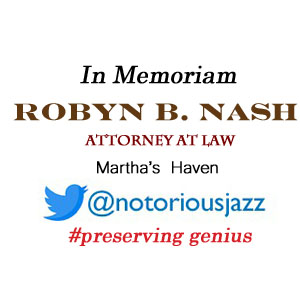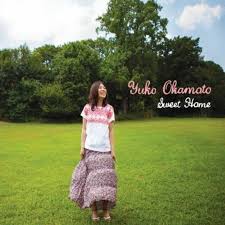
Daily Dose Of Jazz…
Yuko Okamoto was born in Miyagi, Japan on May 21, 1984 and started playing piano at age 5 but changed to Electone, a synth organ, at age 7. When she was in junior high school she won the Miyagi Prefecture first prize of the Yamaha Junior Electone Festival. She was chosen as a semifinalist of the Interntational Yamaha Electone Competition at Akasaka Britz in 2002 and Shibuya AX in 2004. In 2003 she won first prize of ‘Yamaha Electone Competition Expert Division and she earned a high evaluation on her performance and charm.
At age 18, she started studying jazz piano and composition under Kiminori Atsuta and Masa Matsuda. She also played in various jazz clubs, restaurants and bars with great bands and popular artists. In 2006 she entered Berklee College Of Music in Boston, Massachusetts. She studied composition, arranging, and performance under George Russell Jr, Walter Besely, John Arcaro, and Bill Eliott among others.
In 2008 she played her original music at Carnegie Hall in NewYork City and performed at Boston City Hall with different bands. She co-stared with One Voice Children’s Choir lead by Masa Fukuda. She has composed for film music and short image video music,
Pianist Yoko Okamoto Now she moved to New York City and is fully engaged as a composer, arranger, and performer.
More Posts: arranger,composer,history,instrumental,jazz,music,piano
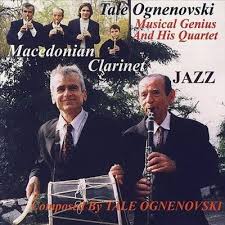
Daily Dose Of Jazz…
Tale Ognenovski was born April 27, 1922 in Brusnik, Bitola, Kingdom of Yugoslavia. He inherited his talent from his reed pipe great-grandfather Ognen and grandfather Risto and his father Jovan who played bagpipes. When he was seven he began playing on the reed pipe. With his father passing away in 1937 and when he was fifteen his grandmother gave him some money to buy his first clarinet.
During WWII he served as a Macedonian Partisan, Tale began playing clarinet at celebrations and concerts in villages and the town of Bitola with numerous musicians. For three years beginning in 1951 he worked as a member of the Police Wind Orchestra and from 1954 till 1956 he worked with the Public Town Skopje Orchestra.
1956 saw him performing to a capacity audienceat Carnegie Hall in New York City as a clarinet and reed pipe/recorder soloist of the Macedonian State Ensemble of Folk Dances and Songs. A seven year residency starting in 1960 had Ognenovski working with Radio Television Skopje. He went on to play in orchestras and ensembles that toured North America, and Europe.
HIs recordings were not singularly jazz, but included the works of Benny Goodman and Artie Shaw. Tale also recorded classical and folk dances, often interlinking the three genres. Alongside his son Stevan, they arranged for two clarinets the music of Mozart. He was the recipient of twenty-one prestigious awards, had several articles and was recognized as one of the top 100 clarinetists of all time.
Clarinetist Tale Ognenovski, who authored a book on Macedonia dance and was biographed by his son Stevan, died in Skopje, Macedonia on June 19, 2012.
More Posts: arranger,bandleader,clarinet,history,instrumental,jazz,music,recorder
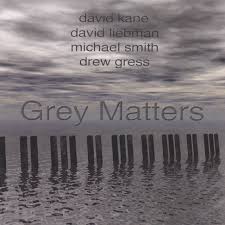
Daily dose Of Jazz…
David Kane was born in Glasgow, Scotland on April 13, 1955 and moved to the United States with his family in 1965. He began playing piano and composing music at the age of eight and went on to attend North Texas State University in 1972. Moving to Washington, D.C. in 1975, he studied with Doctor Asher Zlotnik for five years. In addition, he studied with Ludmila Ulehla, Alan Mandel, and Clare Fischer.
He has performed with Woody Shaw, David Liebman, Marlene VerPlanck, Charlie Byrd, Jim Snidero, Mark Murphy, Eddie Daniels, Dizzy Gillespie, Pam Bricker, Maxine Sullivan, Tom Keenlyside, and Michelle Hendricks. In addition, he has led his jazz quartet featuring drummer Michael S. Smith, saxophonist Glenn Cashman, and bassist Drew Gress.
Kane has accompanied many classical artists including the Twentieth Century Consort, the National Symphony Orchestra, Baltimore Symphony Orchestra, Charlotte Church, Joshua Bell, Renée Fleming, Denyce Graves, and James Galway.
Having composed a variety of chamber works, David is also a prolific composer for film and television for over 30 years with over 250 credits to his name. Most notably, he composed music for the National Geographic Channel, the Smithsonian Channel and for Public Radio International.
From 2006 to 2015, he put on his music critic cap and wrote for Cadence Magazine. In 2021 Jamey Aebersold Jazz published his treatise on improvisation, Playing Outside the Chord. Pianist, composer, arranger, author and music critic David Kane continues to expand his endeavors in music.
More Posts: arranger,bandleader,composer,critic,history,instrumental,jazz,music,piano
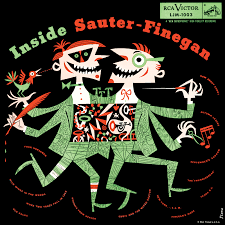
Daily Dose Of Jazz…
William James Finegan was born on April 3, 1917 in Newark, New Jersey and grew up in a household full of piano players. While growing up in Rumson, New Jersey, he attended Rumson-Fair Haven High School, and taught orchestration to schoolmate Nelson Riddle. He studied piano with Elizabeth Connelly, piano and musicianship with flautist/alto saxophonist Rudolph John Winthrop., and spent time studying at the Paris Conservatory.
He had his first professional experience leading his own piano trio before being offered a job as a staff arranger for Glenn Miller after Tommy Dorsey bought a copy of his Lonesome Road and recommended him. Finegan remained with Miller until 1942 and arranged such hits as Little Brown Jug, Sunrise Serenade, Song of the Volga Boatmen, Stardust, A Nightingale Sang in Berkley Square and Jingle Bells. He arranged these songs in collaboration with Glenn Miller, but also arranged music for films in which the band appeared in the early Forties. He then worked off and on for Tommy Dorsey from 1942 to 1952.
In the late Forties Bill studied in New York City, then lived in Europe from 1948-1950 where he studied with Darius Milhaud and Valérie Soudères. After returning to the States in 1952, along with Eddie Sauter formed an ensemble, the Sauter-Finegan Orchestra, which remained active until 1957.
Following this collaboration, Finegan found work in advertising, writing music for commercials. In the Seventies, he arranged for the Glenn Miller Orchestra and Mel Lewis’s orchestra. He taught jazz at the University of Bridgeport in the 1980s. He wrote arrangements for cornetist Warren Vaché and the vocal group Chanticleer until his death in 2008.
Pianist, composer and arranger Bill Finegan died from pneumonia on June 4, 2008 in Bridgeport, Connecticut at the age 91.
More Posts: arranger,composer,history,instrumental,jazz,music,piano

Daily Dose Of Jazz…
Jayna Nelson was born in Lincoln, Nebraska on March 16, 1958. She began to study piano as soon as she could reach the keyboard. At age 9 she began to study the flute as well and by age 17 had won both the Baldwin Junior Keyboard award and the l Music Teachers’ National Association Competition.
Graduated from the University of Toronto in Flute Performance, for the next two years, she served on the faculty at University of Toronto teaching chamber music. There she also premiered a work by Mario Davidovsky, and was principal flutist with the Union College Orchestra, the Wesleyan College Orchestra, Opera Omaha Orchestra and Symphony Canada. In 1983 she attended the Banff Centre Jazz program headed by Dave Holland and studied and performed with Anthony Braxton, Don Thompson, Dave Liebman and John Abercrombie.
A move to New York City in 1989 saw her continuing to work in the classical and jazz genres as a performer, producer, composer, arranger and educator. She designed and implemented integrated arts curriculum for New York area schools and summer camps. She has lectured and given seminars, maintained a private teaching studio for over 20 years and has been a flute technician and consultant for Anthony Braxton, Dave Liebman, Joe Giardullo, Jeanne Baxtresser, Joannie Maddon, Carlos Malta, Hermeto Pascoal, and James Moody.
Nelson has recorded and performed with a host of musicians including Karl Berger, Hilliard Green, Howard Johnson, Silvana Malta, Francois Moutin, Hermeto Pascoal, Sirius String Quartet, Petula Clark, Ingrid Jensen, Marty Morrell, Dave Valentine, and numerous others.
Flutist Jayna Nelson continues to perform, tour, compose, record and educate.
More Posts: arranger,bandleader,composer,educator,flute,history,instrumental,jazz,music,producer



